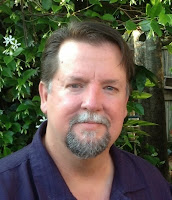by +AneMulligan @AneMulligan
I'm delighted to have as our guest, our very first interviewee, Deborah Raney.
Happy birthday, Novel Rocket!
Don't forget to leave a comment every day this week to be entered in the drawing for these books:Deb, you were our very first Novel Rocket interview in Sept 2005. What’s happened in the past 10 years?
Wow, Ane! I can’t believe it’s been 10 years
already! Whoosh! What’s happened in the past 10 years. Well, I’ve become Mimi
to 5 precious grandkids, with 2 more on the way. Oh, wait… You mean in the writing
world? ;) Well, let’s see…
Ten years ago, I was just signing my contract
with Howard. I wrote seven books for them, and am now writing a five-book
series for Abingdon Press. I’m working on my 31st novel now and still enjoying
my career as a novelist. I’m also doing some freelance editing now, and finding
I really enjoy that!
How
has your writing changed in these years?
With my two series for Howard, and especially my
standalone The Face of the Earth, I was able to incorporate more threads
of suspense than in my earlier novels. That was a challenge and made me a
better writer, I think, even with my new series, which is a bit more
lighthearted than some of my books.
Overall, I definitely write shorter and more
spare now than I did earlier in my career. I’m not sure what brought that
change about, but I’ve learned to let dialogue carry a good part of the story,
and maybe I’ve learned not to include the boring parts readers skip over.
How
have you seen the industry change over the past 10 years?
The whole e-book phenomenon has really shaken up
the publishing industry. I see both challenges and advantages for authors in
this. Challenges because the competition has never been stiffer, and the rules
have never been so hard to pin down. What worked even two years ago doesn’t
necessarily hold true today.
With traditional publishing, there seems to be
fewer slots and shrinking advances. But the good news is that it has never been
easier to self-publish. Many authors are having success publishing their own
novels or publishing with small indie presses. And competition is always good
for everyone in the long run.
I think the future looks bright for new writers,
as long as they don’t skip the important steps—study the craft, get
professional editing, professional cover design, etc., things that have always
been hallmarks of good books.
I’m sure we have yet to see how things are going
to ultimately shake out, but one thing is sure: storytellers will never go
away. And that makes this reader happy.
I’m so honored to have been a part of Novel
Rocket all these years, and I hope you’ll come back [to me] in another ten
years and see what’s up with both of us then!
Two Roads Home
Minor-but-nagging setbacks continue to sour Grant and Audrey Whitman’s initiation into the world of innkeeping, but larger challenges brew when an innocent flirtation leads to big trouble for the Whitmans’ son-in-law, Jesse.
Jesse Pennington’s friendly, outgoing personality has always served him well, especially in a career that has earned him and his wife Corinne a very comfortable lifestyle. But Corinne and Jesse are both restless—and for similar reasons, if only they could share those with each other. Instead, too many business trips and trumped-up charges of harassment from a disgruntled coworker threaten their marriage and possibly put their three precious daughters at risk.
With their life in disarray, God is tugging at their hearts to pursue other dreams. Can Corinne and Jesse pick up the pieces of what was once a wonderful life before it all crumbles beneath them?
Two Roads Home
Minor-but-nagging setbacks continue to sour Grant and Audrey Whitman’s initiation into the world of innkeeping, but larger challenges brew when an innocent flirtation leads to big trouble for the Whitmans’ son-in-law, Jesse.
Jesse Pennington’s friendly, outgoing personality has always served him well, especially in a career that has earned him and his wife Corinne a very comfortable lifestyle. But Corinne and Jesse are both restless—and for similar reasons, if only they could share those with each other. Instead, too many business trips and trumped-up charges of harassment from a disgruntled coworker threaten their marriage and possibly put their three precious daughters at risk.
With their life in disarray, God is tugging at their hearts to pursue other dreams. Can Corinne and Jesse pick up the pieces of what was once a wonderful life before it all crumbles beneath them?














 ago at a pastor's conference. It was shared by a seasoned pastor speaking to other pastors and, as I recall, he didn't know who first coined the phrase, either.
ago at a pastor's conference. It was shared by a seasoned pastor speaking to other pastors and, as I recall, he didn't know who first coined the phrase, either. , money only came in about every 6 months.
, money only came in about every 6 months.






